题目内容
Eileen Collins is the first woman ever chosen to be a spaceship pilot. She is also the first woman to command (指挥) a spaceship. Today she has flown more than 5, 000 hours in more than 30 kinds of airplanes.
Talking about high school, she said, “I began reading all kinds of books about famous women pilots. These women went and flew into dangerous places. Their stories encouraged me.” In 1977 Eileen got a pilot’s license and the following year she graduated(毕业) from university. She went into space in 1999 at the age of 43. She took with her the hopes and dreams of a nation of young people on the earth.
Eileen is not only an astronaut (宇航员) but also a wife and the mother of a young daughter. She has short curly hair and friendly brown eyes. She met her husband, Pat, while they were together in the air force(空军).
When she was named as the First Woman Spaceship Commander in 1998, Eileen smiled and said, “When I was a child, I dreamed about space. It was only a dream that I would be one of the astronauts someday. I hope all children will be encouraged to reach for their dreams, when they see I go into space. I believe dreams do come true!”
1. How many hours has Eileen flown?
2.When did Eileen go into space?
3.What does Eileen look like?
4.Who did Eileen meet in the air force?
5.Did Eileen believe that her dream would come true?
1.5000
2.in 1999
3.She has short curly hair and friendly brown eyes.
4.Her husband, Pat
5.Yes, she did
【解析】【主旨大意】本文主要叙述了第一位女宇航员Eileen Collins以及她在现实生活中的一些故事。同时也讲述了她儿时的梦想。她也鼓励其他的孩子,要有梦想并相信梦想有一天能够实现。
1.细节理解题。从文章第一段中的第三句可知答案。
2.细节理解题。从句子“She went into space in 1999 at the age of 43.”可知答案。
3.细节理解题。从短文第三段可知答案。
4.细节理解题。从文章第三段的最后可知道答案。
5.细节理解题。文章最好一句可知答案。

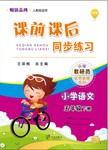 课前课后同步练习系列答案
课前课后同步练习系列答案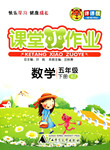 课堂小作业系列答案
课堂小作业系列答案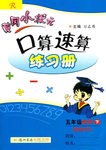 黄冈小状元口算速算练习册系列答案
黄冈小状元口算速算练习册系列答案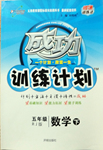 成功训练计划系列答案
成功训练计划系列答案 倍速训练法直通中考考点系列答案
倍速训练法直通中考考点系列答案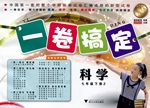 一卷搞定系列答案
一卷搞定系列答案